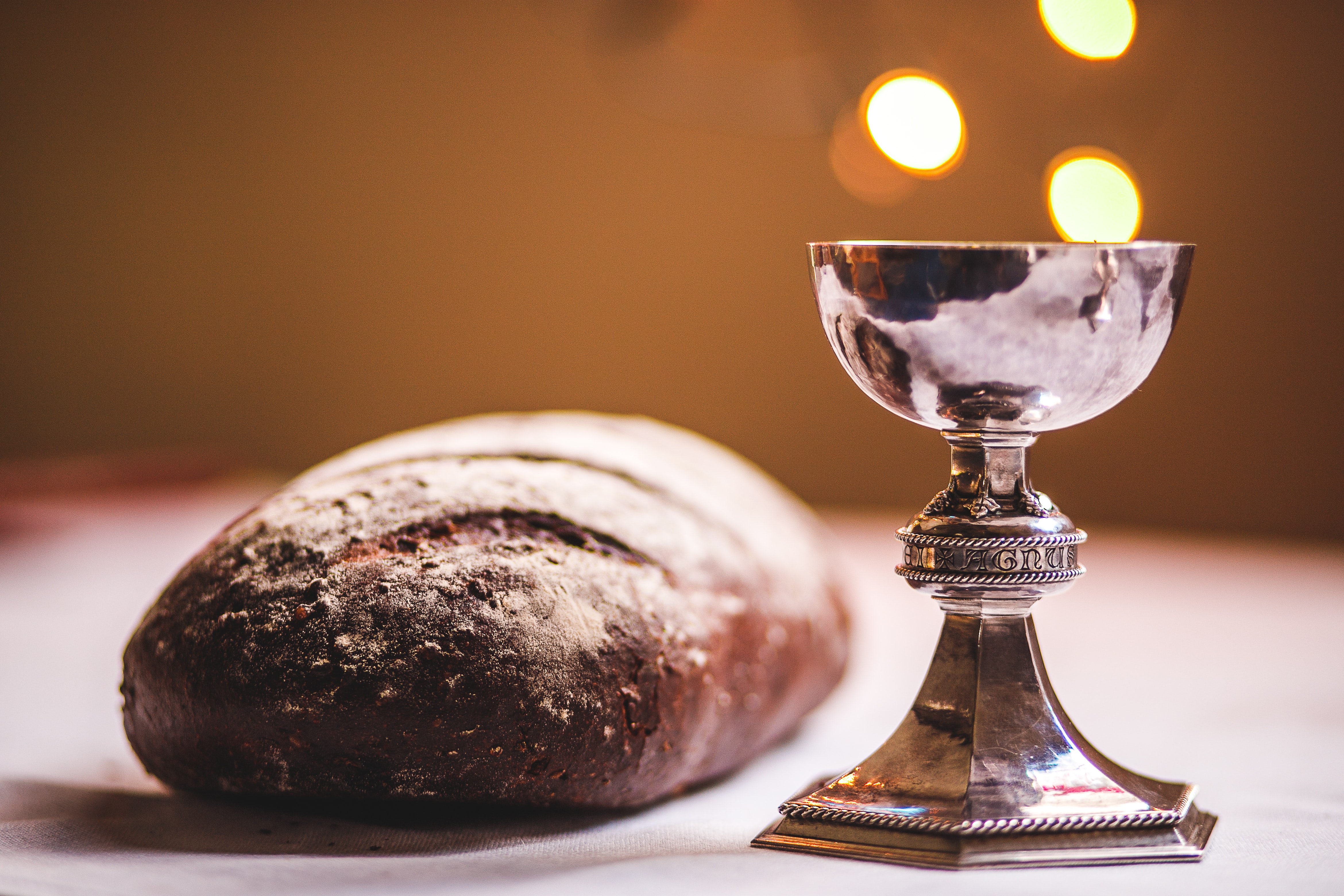By Bread Aloneনমুনা


Last Supper
On the first day of Unleavened Bread the disciples came to Jesus, saying, “Where do you want us to make the preparations for you to eat the Passover?” He said, “Go into the city to a certain man, and say to him, ‘The Teacher says, My time is near; I will keep the Passover at your house with my disciples.’” So the disciples did as Jesus had directed them, and they prepared the Passover meal.
When it was evening, he took his place with the twelve; and while they were eating, he said, “Truly I tell you, one of you will betray me.’” . . . While they were eating, Jesus took a loaf of bread, and after blessing it he broke it, gave it to the disciples, and said, “Take, eat; this is my body.” Then he took a cup, and after giving thanks he gave it to them, saying, “Drink from it, all of you; for this is my blood of the covenant, which is poured out for many for the forgiveness of sins. I tell you, I will never again drink of this fruit of the vine until that day when I drink it new with you in my Father’s kingdom.” (NRSV)
Jesus took a loaf of bread, blessed it, broke it, and gave it to his disciples. His actions parallel the rhythm of feeding the 5,000—the bread is blessed, broken, and distributed.
In today’s reading, the disciples aren’t necessarily hungering for miraculous provision. They prepared the meal according to Jesus’ instructions, and we can pretty safely assume they had all they needed.
The bread in this story is not a sign of God’s miraculous provision, but rather a sign of God’s promise: the promise of a covenant, of Christ’s blood, poured out for many for the forgiveness of sins.
In Genesis 3, we read of a curse on the soil. It was the result of a meal that brought death into the world, and it was felt each time humans labored in the fields and in the kitchen to make their bread.
But in this story, we see the foretelling of a death that will be remembered through a meal—a death that brings the world back to life.
In this story, Jesus is taking the curse of sin onto his own body, offering bread not just through miraculous respite from painful toil, but as a promise that his death and resurrection will triumph over the curse once and for all.
Using the words, “This is my body,” Jesus also marks bread as a reminder of his ongoing presence with his followers. In the version of this story captured in the Gospel of Luke, Jesus exhorts his followers to continue doing this in remembrance of him.
Bread as provision, bread as promise, bread as presence—an ongoing reminder that Jesus is near.
Scripture
About this Plan

Bread is an important part of daily life for most people around the world. Whether bought from a store, made at home, or given by a friend, it is known as the staff of life. Breaking bread has long been part of Christian worship, but bread is more than just a handy metaphor in Scripture. It’s the tool used to prove God’s provision for, redemption of, and communion with humanity.
More
Related Plans

Promises

Life to the Full: A Study on Whole-Life Generosity

Friend in High Places: 5-Day Devotional

Come Away: Learning to Rest With Jesus

Fervent Still

Faith-Fueled Leadership: Embracing Gratitude and Grace

Romans

Rediscovering Hope: Experiencing God’s Healing to Expect Again

It Is Christmas: The Journey of the Nativity
